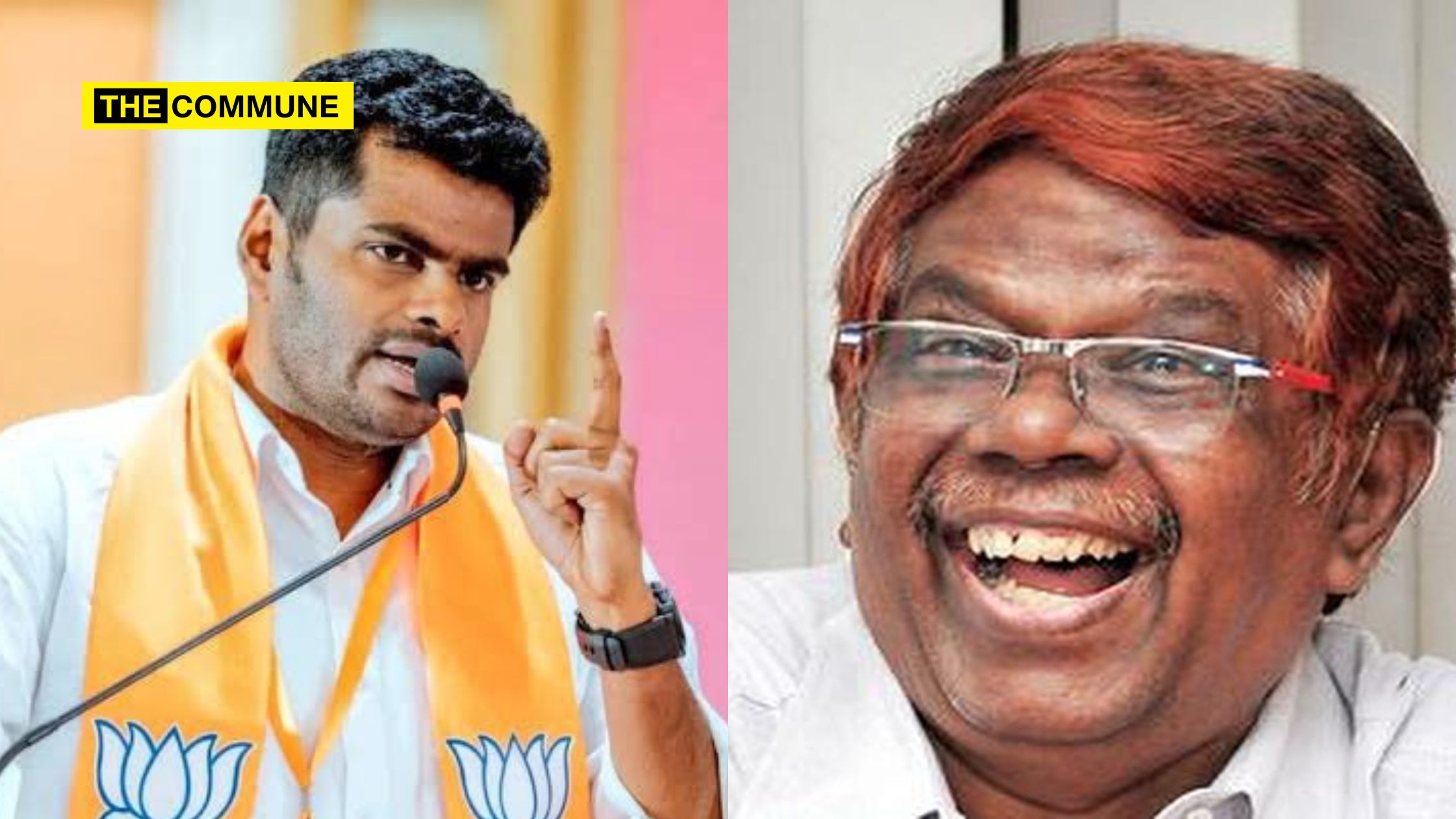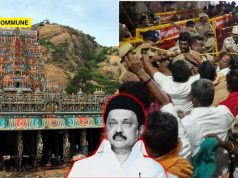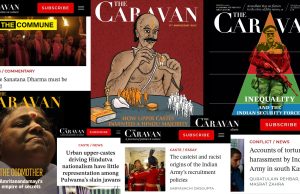
Tamil Nadu BJP president Annamalai has criticized former judge Chandru for his remarks against the BJP, suggesting he should officially join the DMK if he wants to engage in politics. He accused Chandru of participating in government committees for self-interest and imposing DMK ideologies through committee reports on student communities.
This criticism was sparked by Chandru’s recent comments at a book fair in Hosur, where he criticized the Annamalai report without apparently reading it. Chandru claimed to have conducted extensive research for a government-commissioned education report, which he handed over to Chief Minister Stalin. However, he lamented that the report’s content remained undisclosed and criticized opposition leaders for dismissing it without review. Further remarked that fascists historically fear an educated society. He drew parallels to the burning of libraries in Germany during the 1930s and similar incidents in Eelam, emphasizing that fascists fear an enlightened public and the knowledge found in books.
In response to criticism, Annamalai, via his official X account, issued a detailed rebuttal to former judge Chandru, highlighting that the recommendations were met with public opposition, including from various parties and social organizations, including the BJP specifically, objections to proposals such as integrating Kallar Reform and Adi Dravidian Welfare department schools into the Department of School Education without adequate research into the educational needs and progress of these communities over the years. He also criticized suggestions like denying senior positions to community teachers and ridiculed humorous recommendations like organizing students into groups based on the first letter of their names, Social Justice Student Groups, and viewing these as undue interference in the duties of school principals and teachers.
Annamalai further contested recommendations that appeared to restrict Hindu students from wearing Vibhuthi, Kungumam, and sacred threads, calling it symbolic religious suppression orchestrated by the DMK. He also criticized proposals to hold student elections in schools, arguing that this would politicize educational institutions unnecessarily. Regarding Chandru’s remarks about libraries and morality, Annamalai highlighted initiatives by Prime Minister Narendra Modi’s government to restore and support libraries in Jaffna, Sri Lanka, emphasizing the BJP’s commitment to culture and education.
Annamalai concluded by urging Chandru not to lecture on issues of morality and culture, particularly as a member of committees under the DMK government, which he accused of prioritizing liquor sales over societal values. He reiterated that the BJP’s opposition was aimed at the government’s policies affecting Tamil Nadu’s student community, not Chandru personally. He also challenged Chandru’s impartiality in his report, accusing it of being politically motivated and aimed at undermining traditional cultural values. In essence, Annamalai’s response aimed to clarify the BJP’s stance against the imposition of DMK’s ideologies on educational institutions in Tamil Nadu.
Annamalai in his X account stated, “Unable to tolerate the objections to his statement, Justice Mr. Chandru has taken a new avatar as DMK’s Policy Outreach Secretary. He should at least realize that if DMK’s policies are given as a manifesto, there will be protests and criticism from the public.”
The statement read, “Last 12th August 2023 on behalf of Govt in Tamil Nadu to avoid violence arising out of caste and ethnic sentiments among school and college students and to create harmony, a one-man panel headed by former Justice Chandru was set up. The committee’s report was presented to Chief Minister Stalin and details of its recommendations were released to the media. Many of the recommendations made in the report were unacceptable to the public. Sow diversity among the student community. Therefore, various parties and social organizations, including the BJP, had registered their opposition to certain aspects of the report. On behalf of the Tamil Nadu BJP, on 19th June, in a press conference, we spoke about the unacceptable recommendations in this report.”
“Specifically, a recommendation to bring Kallar Reform and Adi Dravidian Welfare department schools under the Department of School Education. How can this recommendation be accepted without any research findings on the education of students from these communities or their social progress over the years? One more suggestion is that the community teachers, who are the majority in their respective areas, are denied senior positions in those schools,” he queried.
“Why has this doubt not arisen on the faculty members for so many years since the time of the great leader Kamaraj, the golden age of education, why is it coming now? Humorous suggestions include seating students by first letter of name, to form something called a Social Justice Student Group. How can we accept that the ruling party’s committee interferes with all the work that school principals and class teachers have to do?” He further queried.
“The recommendation of that preventing only Hindu Students from keeping Vibhuthi, Kungumam on their foreheads, and sacred thread tying on the hands will be seen as the symbolic destruction of religion and whatever other reason is given, it is DMK’s drama.“ He added.
“Recommendation of conducting student elections is dangerous in schools, Is it not enough that the DMK and other parties have ruined the student society entering the college elections? Do you want to sacrifice school students too for your political gain? That is why in our executive committee meeting held last 6th July, we had passed a censure resolution against This ex-judge Chandru’s report, which wants to destroy our country’s culture and identity of our society,“ He added.
“It seems that Chandru is upset by this. Speaking about this report at a function recently, he talked about libraries and morality and asked what the BJP knows about these. It was the government led by the Hon’ble Prime Minister of India, Narendra Modi, who opened a special section for Indian books in the Jaffna library that had been burnt down and made arrangements to provide 16,000 books. In the same Jaffna, it was Prime Minister Modi’s government that set up a cultural center at a cost of about 11 million US dollars,” he further wrote.
“I first request Chandru not to lecture us about library, morality, and culture, who is part of a committee of DMK government which keeps TASMAC shops open from street to street. Ever since the DMK came to power, it seems that former judge Chandru, who has been a member of several committees such as one-man committee, other group committee, could not accept the opposition to his report,“ he further stated.
“Chandru, the protest here is only against the report of the committee set up by the government to affect the student community across Tamil Nadu, not against the serial or the novel written by you. It is the Tamil Nadu Government who has to answer that, not Chandru as an individual. The first question of Chandru’s report should have been why such caste divisions did not exist on a large scale among the student community before the DMK came to power. But he must have been an impartial person to pose that question. Your political position and the purpose of this report are clear when you mention the word saffronization in Recommendation No. 19 (C) of the report,“ he further added.
“Chandru sir, you have forgotten that your mission was complete when you submitted the report. In a democracy, it is the job of a responsible opposition to support and oppose the government’s public policies. We are opposing the imposition of DMK’s policies on the student community. If there is a desire to talk politics, Chandru can officially join the DMK. Instead of that, sitting in the committees formed by the government for self-interest, and imposing DMK’s ideologies on the student community in the name of committee report, with the tax money of the people, I am sure that there will be opposition to it,” he concluded.
தனது அறிக்கைக்கு வந்த எதிர்ப்புகளைப் பொறுத்துக் கொள்ளமுடியாமல், நீதிபதி திரு.சந்துரு, திமுகவின் கொள்கைப் பரப்புச் செயலாளராக, புதிய அவதாரம் எடுத்துள்ளார்.
திமுகவின் கொள்கைகளை அறிக்கையாகக் கொடுத்தால், பொதுமக்களிடையே எதிர்ப்புகளும் விமர்சனங்களும் வரும் என்பதை, அவர் இனியாவது உணர… pic.twitter.com/3EryZd7CAy
— K.Annamalai (@annamalai_k) July 17, 2024
Justice Chandru’s committee was formed as the result of the disturbing Nanguneri incident in Tirunelveli district where two Scheduled Caste students were attacked by students from an intermediate caste on the night of 9 August 2023.
The Committee & Its Recommendations
To prevent such caste-based violence, the government set up a one-man committee. Retired Madras High Court judge Justice K. Chandru submitted the report to CM Stalin and recommended “significant” changes to eliminate caste indicators in Tamil Nadu schools. The recommendations include banning coloured sacred wrist threads, rings, and forehead marks – tilak that signify caste, and removing caste-related names from schools. Point 8B states, “Students should be prohibited from wearing any coloured wristbands, rings, or forehead marks (Tilaka). They must also refrain from coming to school on bicycles painted with reference to their caste or exhibiting any caste-related sentiments. Failure to comply with these rules must result in appropriate action being taken, in addition to advising their parents or guardians.”
Some of the other recommendations include:
- The report advises that students must not display any caste-related sentiments, including using bicycles marked with caste references. Non-compliance should result in appropriate actions and parental advisement.
- State-run schools should remove terms like ‘Kallar Reclamation’ and ‘Adi Dravidar Welfare’ from their names. Private schools should be requested to drop caste appellations, with legal action considered for non-compliance, potentially through legislative changes.
- The committee also recommends that student attendance registers omit any caste-related details. Teachers should avoid calling students by their caste or making derogatory remarks linked to caste.
- To enforce these changes, the report suggests amending the Tamil Nadu Societies Registration Act, 1975, to prevent societies intending to start educational institutions from using caste-based names.
- The report also calls for new legislation to promote social inclusion and eradicate caste discrimination, imposing responsibilities on students, staff, and school management, with mechanisms for supervision and penalties for non-compliance.
Additionally, the committee proposes enhancing local bodies’ control over primary education, granting block-level administrations full authority over schools, including staffing decisions. The state government should handle curriculum guidelines, standards, and board exams while formulating new laws to empower local bodies and amend the Tamil Nadu Panchayat Act of 1994 for a more community-focused education system.
This removal of caste names, hiding/”protecting” caste names, and prohibiting wearing Tilak and sacred wrist threads is akin to the Dravidian model of making Hindus remove their caste/surnames. The Dravidian ideologues enforced this removal of a person’s surname as a means to “abolish/eradicate” caste. Ironically, despite having succeeded in removing surnames as a mode of eradicating caste differences, incidents like Nanguneri continue day in and day out.
Critics see this move as a method to divide the Hindus further based on caste and also ensure that Hindus lose their identities forever. Instead of creating awareness and empathy in children about various castes and fostering harmony, recommending such drastic and Hinduphobic measures will only lead to dividing the society further and deepening the Dravidianist ideologies in the minds of the people and destroying society.
Subscribe to our channels on Telegram, WhatsApp, and Instagram and get the best stories of the day delivered to you personally.




